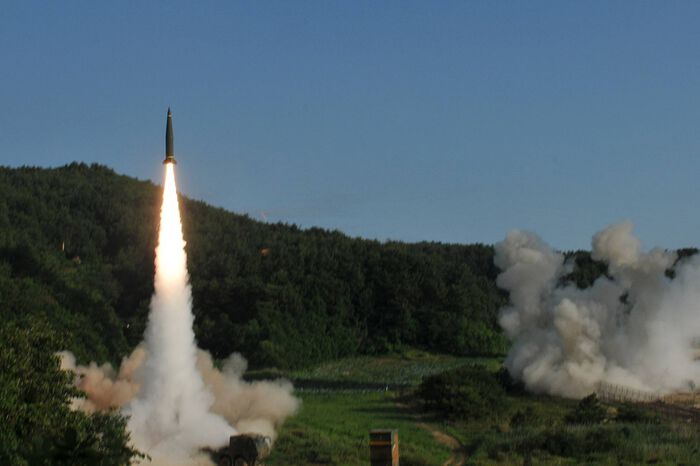Events - Page 2
In this online seminar, we will discuss Even Hellan Larsen's paper "Deliberate nuclear first use in an era of asymmetry: a game theoretical approach"
In this online seminar, we will discuss Erik Lin-Greenbergs paper "Cheap Tweets: Crisis Signaling in the Age of Twitter".
In this online seminar, we will discuss Caitlin Talmadge's draft paper with Vipin Narang and Lisa Michelini, “When Actions Speak Louder than Words: Adversary Perceptions of Nuclear No First Use Pledges.”
Technological shifts are eroding the line between nuclear and conventional weapons. We discuss the implications for strategic stability, and examine Russia’s and South Korea’s deterrence strategies.
We will discuss Emma Rosengren's chapter, "Armed Neutrality in Dire Straits. A feminist analysis of the 1981 Swedish submarine crisis."
We will discuss Aaron Bateman's article, "Keeping the Technological Edge: Britain and the Strategic Defense Initiative."
We will discuss Philipp Lutscher's article, "Digital Retaliation? Denial-of-Service Attacks After Sanction Events".
We will discuss Oliver Barton's paper "'No Special Privileges'? British Nuclear Forces, Transatlantic Relations, and the INF Negotiations."
In this online seminar, we disuss Ian Bowers and Henrik Stålhane Hiim's paper: "Conventional Counterforce Dilemmas: South Korea’s Deterrence Strategy and Stability on the Korean Peninsula".
We will discuss Benjamin Schaller's paper, "No Fair-Weather Instrument: The Need to Rethink Military Confidence Building in Europe" and its implications for Arctic security.
In this Oslo Nuclear Project Roundtable, we discuss the future of strategic arms control and its implications for European security.
In this Oslo Nuclear Project Roundtable, we discuss whether modern conventional military capabilities can supplant nuclear weapons for deterrent and warfighting purposes, and the future relationship between nuclear and conventional deterrence.
We will discuss Stephan Kieninger's paper "George Shultz and the Road to the INF Treaty. Process and Personal Diplomacy"
We will discuss J. Luis Rodriguez' paper "Ordering Strategies: Latin American Participation in the Crafting of the Nuclear Order"
Online seminar with Professor Timothy Andrews Sayle, the University of Toronto
Seminar with Dr. Ariane M. Tabatabai, Middle East Fellow at the Alliance for Securing Democracy at the German Marshall Fund
Online seminar with Mary Sarotte, Marie-Josée and Henry R. Kravis Distinguished Professor of Historical Studies, Henry A. Kissinger Center for Global Affairs, Johns Hopkins School of Advanced International Studies
With H.E. Ambassador Gustavo Zlauvinen
We will discuss Dr. Susan Colbourn's paper "The Short-Lived Struggle to Modernize NATO’s Short-Range Nuclear Forces".
According to the 2017 US National Security Strategy, Moscow and Washington are engaged in a “great powers competition”. At the same time, Russian and American nuclear arsenals combined still represent more than 90% of world’s total. With this in mind the parties should be interested in managing the competition in the safest possible way. However, the arms control architecture, which previously provided a safety net, is falling apart. In order to maintain the relative stability, the parties will have to consider the issues and possible trade-offs, which will be on the negotiation table when or if Moscow and Washington once again decide to pursue arms control, and evaluate possible alternatives like more flexible political agreements.
In this online seminar, we will discuss James Cameron's paper: "What History Can Teach” as published in the Spring 2020 issue of Daedalus, Meeting the Challenges of the New Nuclear Age.
Have you ever wondered what kinds of satellite data are out there for research and study? Melissa Hanham will introduce you to the types of imagery available, what you can "see" with them, and techniques for identifying military activities.
In this online seminar, we will discuss Eliza Gheorghe's working paper: "Balance of Power Redux: Nuclear Alliances and the Logic of Extended Deterrence"


